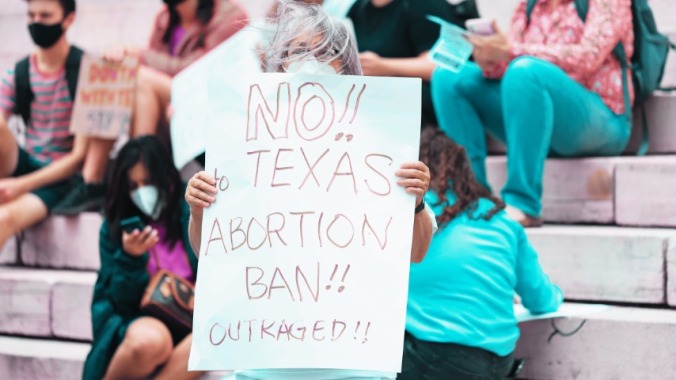A Texas Woman Was Denied an Abortion and Died, Days After the State’s Ban Took Effect
Josseli Barnica died of sepsis because doctors waited 40 hours for her fetus's heartbeat to stop before treating her. Her death came just days after SB 8, the state's "bounty hunter" abortion ban, took effect in 2021.
Abortion
In September 2021, Texas enacted SB 8, a six-week abortion ban enforced by the threat of costly civil lawsuits. The ban took effect nearly a year before the Supreme Court overturned Roe v. Wade in June 2022, activating the state’s trigger abortion law, which bans abortion from conception and threatens doctors with life in prison. But SB 8 alone was already lethal: According to a new ProPublica report published Wednesday, just days after SB 8 became the law of the land in 2021, a 28-year-old mother named Josseli Barnica died a preventable death as a result of the law.
At HCA Houston Healthcare Northwest, Barnica and her husband learned she was experiencing a miscarriage 17 weeks into her pregnancy. The date was September 3, 2021. An ultrasound confirmed “bulging membranes in the vagina with the fetal head in the open cervix,” which was dilated at 8.9 cm, and that Barnica had low amniotic fluid. Doctors and medical experts told ProPublica that, at that point, Barnica needed an immediate abortion to prevent potentially fatal infections like sepsis. But, fearing consequences under Texas’ newly enacted abortion ban, the hospital waited 40 hours until they could no longer detect a fetal heartbeat to treat Barnica. At that point, they gave her medication to speed up her labor, then discharged her after it was complete.
Upon returning to her aunt’s home, Barnica continued to bleed, but the hospital maintained that this was normal. When her bleeding only became heavier after two days, she returned to the hospital. Due to covid precautions allowing only one person to be in the room with Barnica, her husband remained home with their 1-year-old daughter. He never saw Barnica alive again.
Barnica’s autopsy, reviewed by ProPublica, says she died of “sepsis” involving “products of conception.” More than a dozen medical experts who reviewed Barnica’s autopsy and hospital records told the outlet her death was “preventable” and called her case “horrific,” “astounding,” and “egregious.” Dr. Susan Mann, a national patient safety expert in obstetric care who teaches at Harvard University, told ProPublica, “If this was Massachusetts or Ohio, she would have had that delivery within a couple hours.”
-

-

-

-

-

-

-

-

-

-

-

-

-

-

-

-

-

-

-

-

-

-

-

-

-

-

-

-

-

-

-

-

-

-

-

-

-

-

-

-








































